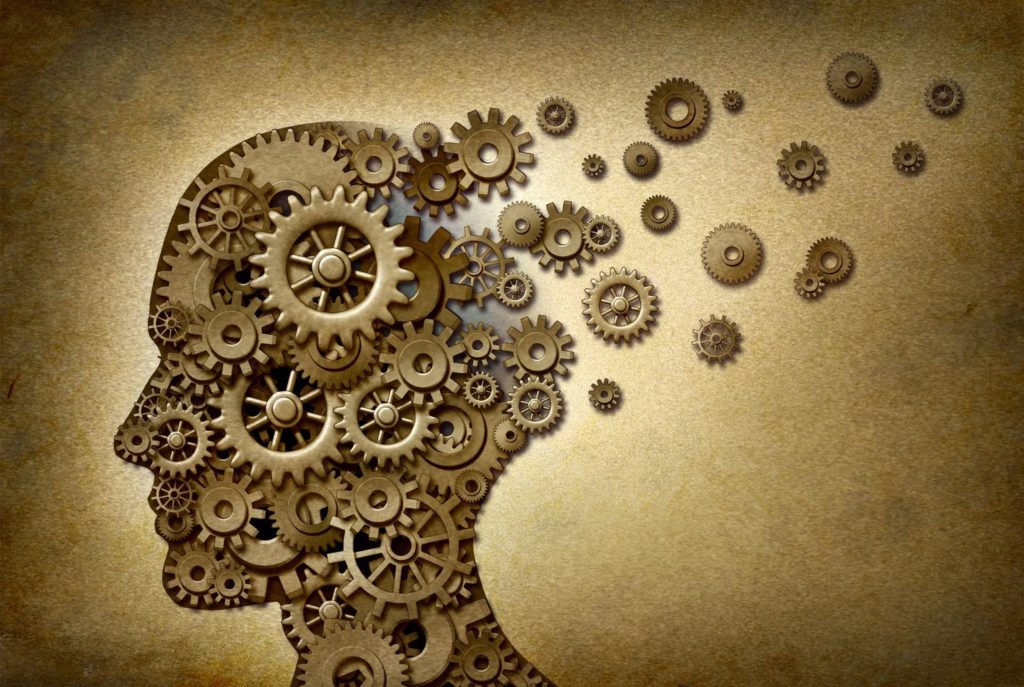The Diagnostic and Statistical Manual of Mental Disorders (the DSM) is the most respected document dealing with the classification, definition, and treatment of mental illness. It is published by the American Psychiatric Association and is updated periodically as new information and experience is acquired.
Mental health does not appear to be on as firm a foundation as physics, biology and most of the other branches of science, but at the beginning of the 21st century it is apparent that it is beneficial in alleviating the suffering of many and cannot be dismissed easily.
Many of the technical classifications are in common use and the general public is accustomed to hearing about schizophrenia, paranoia, and hallucination, just to name a few.
Diagnosing delusion, for example, rests on three criteria.
1. Certainty. There is total conviction in the belief, without doubt.
2. Incorrigibility. The belief is extremely resistant to change from argument or evidence.
3. Falsity. The belief is bizarre or implausible.
You will note that this seems to be a precise definition of many religious beliefs, and the matter would be closed if not for the conspicuous omission of ‘miraculous’ and ‘supernatural’ from the third criteria.
But it goes much deeper than that. It did not escape notice that many mental disorder definitions appeared to target religious beliefs or values and it was appropriate to expressly exempt beliefs having religious foundations. The justification for this exemption is not provided by the DSM.
If other creeds endorsed by organizations were to be exempted from these criteria there would be, without a doubt, a response that demanded some explanation. For example, the Flat Earth Society has members certain that the Earth is flat, and will provide arguments and claimed scientific data to support their belief. If such beliefs were exempted from a diagnosis of delusion we would be obliged to take them seriously and give them equal weight in the classroom.
There is, in fact, no justification for exempting religious beliefs other than “because it’s religious” which is no justification at all and is instead the granting of a privilege. A privilege which is demanded but not supported by any rational reason.
The faithful will respond by claiming that they have been favored with knowledge of absolute and ‘divine’ truth. This truth, they will say, cannot possibly be regarded as implausible or bizarre. This truth is further authenticated by divine revelation and it is beyond question or criticism.
It is puzzling that this claim is seriously offered, that revelation is a reliable tool to obtain the truth of a proposition. If truth is a quality that persists regardless of personal opinion, then revelation is a flagrantly unreliable method of obtaining data that is truthful.
One has only to compare the ‘truths’ obtained divinely by Mormonism, Islam, Christianity, Hinduism, and a thousand other religions.
It can be concluded that the majority of the world’s population is significantly delusional, a mental disorder. Can it be cured and, more importantly, should it be cured?
As to can it be, the treatment for delusion is difficult and time consuming. The incorrigibility factor makes it almost useless to present data or arguments to the patient. The patient must be assisted in examining their own beliefs objectively and recognizing why they hold those beliefs. It is usually done with a Socratic dialogue technique which presents no assertions, but questions the patient with carefully chosen questions. It takes time and a skilled practitioner. It is particularly difficult with religious beliefs since it is usually attempting to reverse a lifetime of persistent and dedicated indoctrination and reinforcement.
Note that this is not in any way a brain-washing procedure since little or no data is ‘told’ to the patient. They are merely encouraged to question themselves in a manner they may have never tried before.
Clearly it is impractical to attempt such a laborious procedure with billions of people. So what can be done?
Perhaps the mental health profession can clarify the delusion disorder, that is, abandon the pretense of religious or cultural exemptions. Make it evident that this disorder is prevalent in all societies and has historically been totally unrecognized as a disorder.
When this becomes general knowledge, the religious may accept their condition and yet claim no need or desire to change. Indeed, these beliefs may have become so much a part of their identity that abandoning them may be a matter of life-threatening scale.
The benefit may be realized by the children, however. Parents aware of their condition may be reluctant to enroll their innocent and trusting offspring in a relentless program of indoctrination from which they themselves may never be able to escape. Perhaps they will see the wisdom of allowing them to reach the age of reason first, so they can make choices appropriate to their needs. This could work rather well.
Now, as to should it be cured? A complete answer to this is beyond the scope of this essay. A short answer is offered. If you are weary of hearing about events like the Pulse nightclub, a massacre of gays, or of events like 9/11, a faith-based initiative, or of videos depicting the decapitation of young men whose only crime was being raised in the wrong culture, then the answer is yes.
